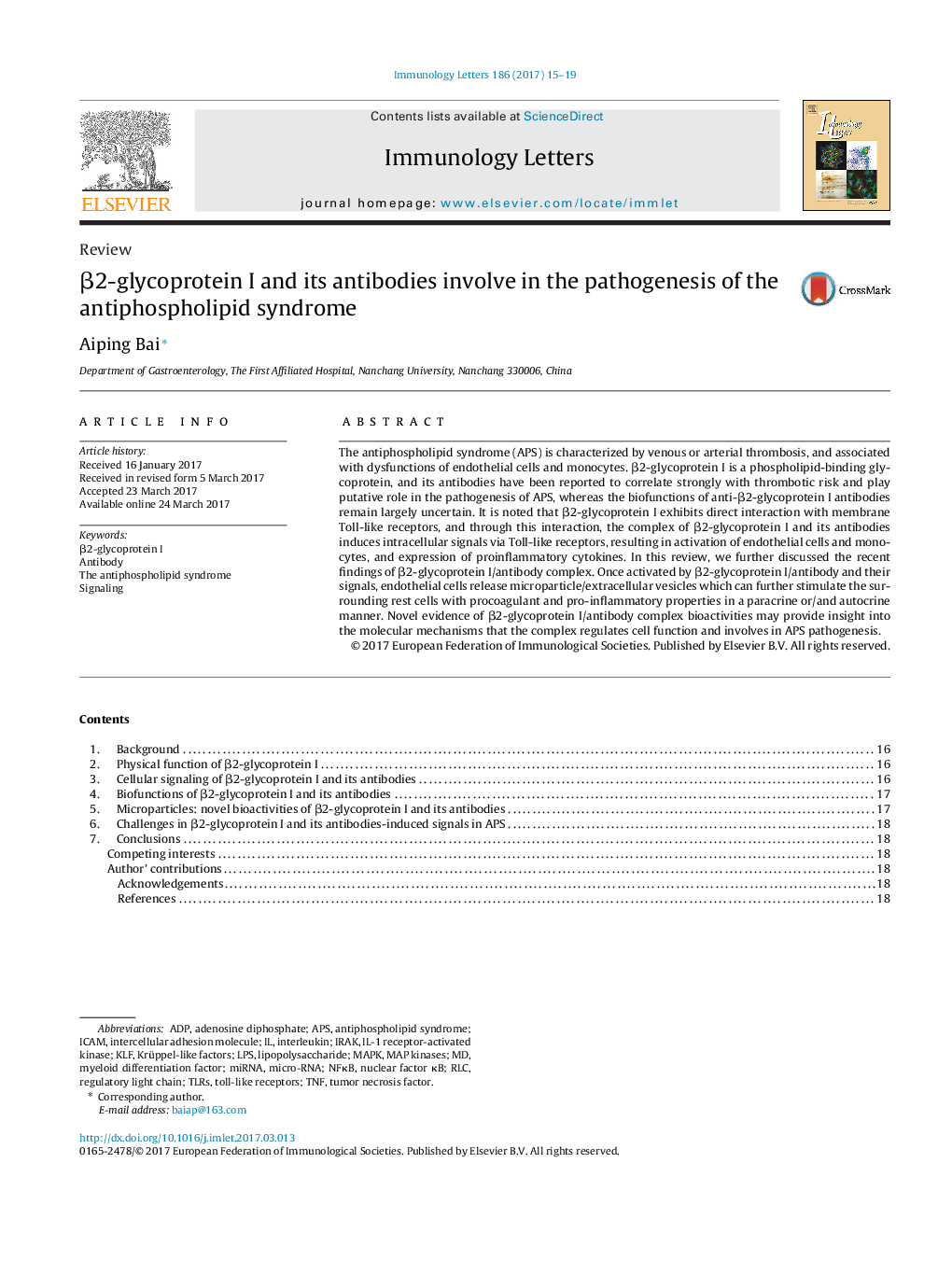| Article ID | Journal | Published Year | Pages | File Type |
|---|---|---|---|---|
| 5666704 | Immunology Letters | 2017 | 5 Pages |
â¢The antiphospholipid syndrome is characterized by elevated levels of anti-β2-glycoprotein I antibodies.â¢The complexes of β2-glycoprotein I and antibodies induce intracellular signals of endothelial cells and monocytes.â¢Once activated by the complexes, endothelial cells release extracellular vesicles which can further activate the surrounding rest cells.
The antiphospholipid syndrome (APS) is characterized by venous or arterial thrombosis, and associated with dysfunctions of endothelial cells and monocytes. β2-glycoprotein I is a phospholipid-binding glycoprotein, and its antibodies have been reported to correlate strongly with thrombotic risk and play putative role in the pathogenesis of APS, whereas the biofunctions of anti-β2-glycoprotein I antibodies remain largely uncertain. It is noted that β2-glycoprotein I exhibits direct interaction with membrane Toll-like receptors, and through this interaction, the complex of β2-glycoprotein I and its antibodies induces intracellular signals via Toll-like receptors, resulting in activation of endothelial cells and monocytes, and expression of proinflammatory cytokines. In this review, we further discussed the recent findings of β2-glycoprotein I/antibody complex. Once activated by β2-glycoprotein I/antibody and their signals, endothelial cells release microparticle/extracellular vesicles which can further stimulate the surrounding rest cells with procoagulant and pro-inflammatory properties in a paracrine or/and autocrine manner. Novel evidence of β2-glycoprotein I/antibody complex bioactivities may provide insight into the molecular mechanisms that the complex regulates cell function and involves in APS pathogenesis.
